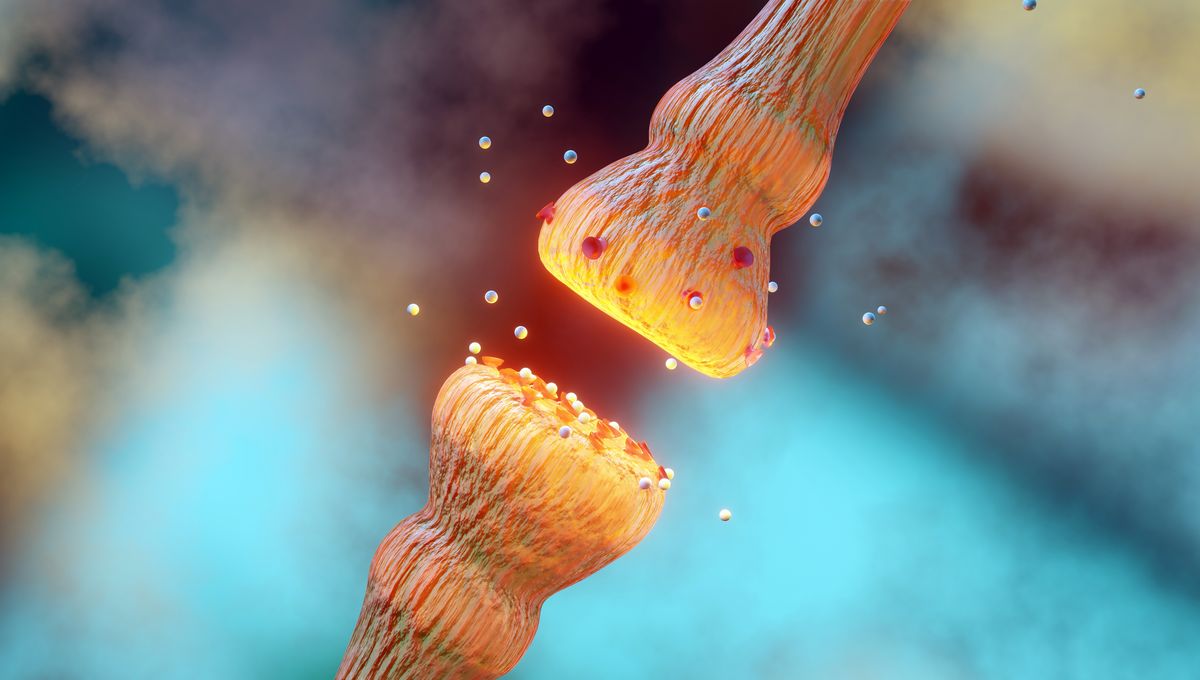
In a world-first breakthrough, scientists have shown that 10 weeks of brain exercises using a game-like app are enough to significantly upregulate the production of vital chemical acetylcholine, something that no prior treatment has ever been able to do.
“The training restored cholinergic health to levels typically seen in someone 10 years younger,” said senior author and neurologist Dr Etienne de Villers-Sidani, of McGill University and Montreal Neurological Institute-Hospital (The Neuro), in a statement seen by IFLScience. “This is the first time any intervention, drug or non-drug, has been shown to do that in humans.”
“This is a really big deal,” echoed Dr Henry Mahncke, CEO of Posit Science, which developed the app, called BrainHQ.
Acetylcholine has dual roles as a neurotransmitter and neuromodulator, meaning it both contributes to information transfer within the brain and alters the activity of other cells to produce different functions. Some people call it the “pay attention chemical” because of its importance in attention, problem-solving, learning, and memory.
The cholinergic system, which produces acetylcholine, starts to decline as we age even in healthy older adults, but levels can drop off a cliff in the cases of diseases like Alzheimer’s.
Until now, the only way to treat this has been with drugs called cholinesterase inhibitors, which prevent acetylcholine from being broken down but can’t do anything to actually increase the levels being produced in the first place.
“While we have known for some time, based on animal studies, that brain chemical systems are ‘plastic’ – capable of change and improvement – this is the first confirmation in humans of an intervention that can upregulate the production of key brain chemicals, even months after the subjects engaged in the training,” said Mahncke.
You’ve probably heard about “brain training” games or activities, and you may also have heard that they’re not all they’re cracked up to be. That may be true for some apps that make bold claims about brain health, but BrainHQ has so far featured in more than 300 published studies that suggest it can have a range of real-world benefits.
You can even try the exercises yourself for free, or get a taster with the playthrough videos below.
“A lot of people assume crossword puzzles or reading are enough to keep the brain sharp. But not all activities truly promote neuroplasticity. The program [BrainHQ] is already commercially available, making it an option for clinicians to discuss with patients interested in supporting brain health,” said Villers-Sidani.
The intervention was tested on 92 cognitively healthy adults aged 65 and over. Half of the group were assigned to a 10-week course of 30 minutes per day using the BrainHQ exercises. The other half acted as a control, spending 30 minutes per day playing a computer game that wasn’t specifically designed to promote brain health.
The result was clear: only those in the BrainHQ group saw improvements in their cholinergic system.
The improvement was measured using positron emission tomography (PET) scans. This type of brain imaging involves binding of a radioactive tracer to a particular ligand in the brain – in this case, FEOBV, which itself binds to a transporter protein that’s only found on cholinergic neurons. That makes it a useful proxy for the health of the cholinergic system.
FEOBV binding decreases by about 2.5 percent per decade between the ages of 20 and 80. After 10 weeks of brain training, the group using BrainHQ saw an increase in binding of 2.3 percent – almost enough to offset an entire decade of normal aging.
Understanding this impact on the cholinergic system helps explain why so many studies have already found benefits to the BrainHQ exercises.
Next, the team hopes to replicate the study in a group of people who are already showing signs of early dementia. In the meantime, they suggest that this intervention could be a low-risk option to be used instead of or alongside medication.
“It’s another indication that brain exercise, like physical exercise, can play an important role in overall health and lowering of risk for chronic diseases,” said Mahncke. “More simply put, this could lower health care costs over time by trillions of dollars.”
The study is published in the journal JMIR Serious Games.
Source Link: “This Is A Really Big Deal”: Brain Training Significantly Improves Key Neurochemical Levels In World First